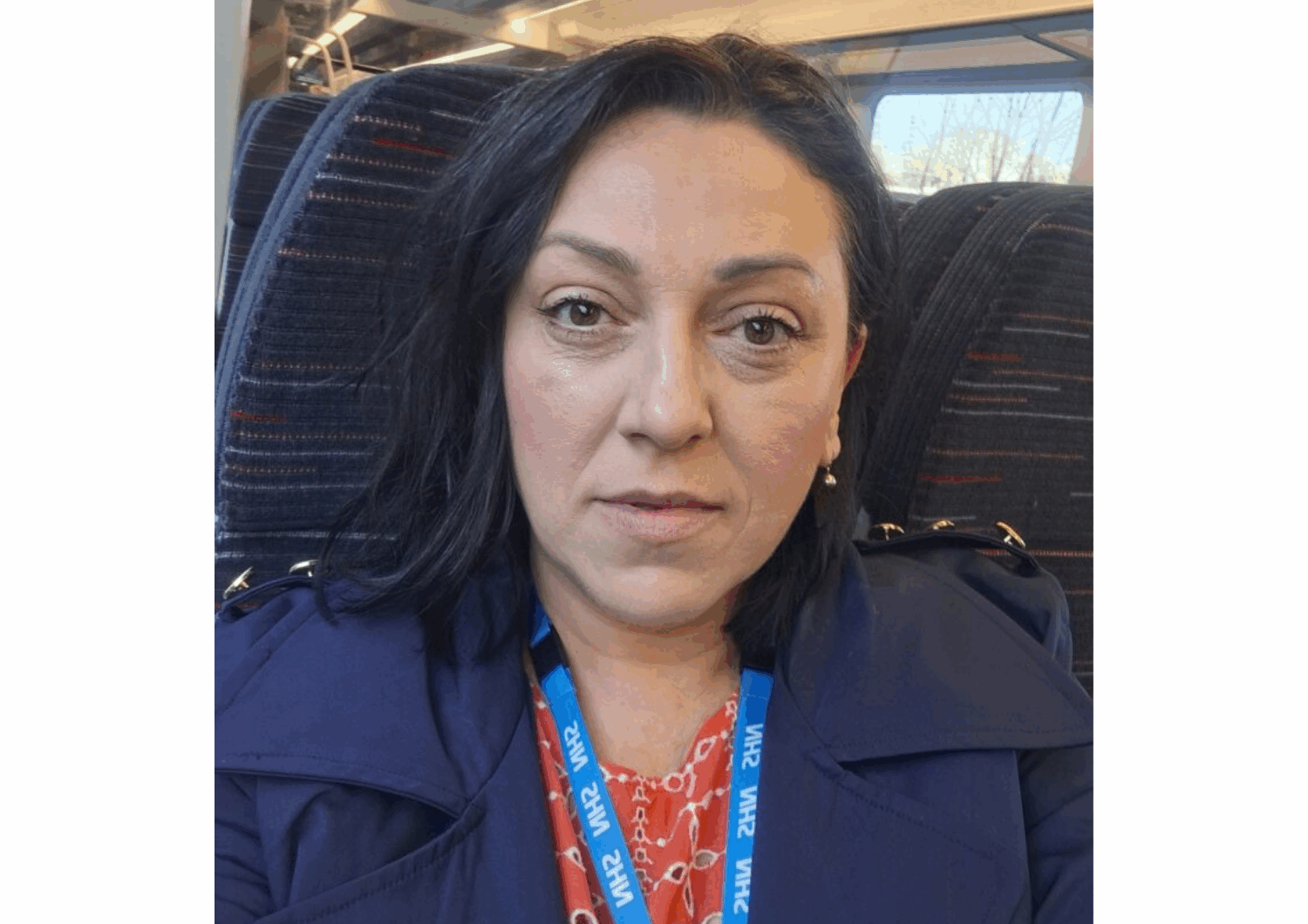
When Nazila Husanovic-Gladwyn joined Essex Partnership University NHS Foundation Trust (EPUT) as a Family and Carer Ambassador (FCA) she found more than a new role – she found her purpose.
FCAs are people with lived experience who provide practical and emotional support to families and carers of those with complex mental health needs. They ensure that families’ voices are heard and acted upon, helping to build stronger relationships between patients, their loved ones, and the clinical teams caring for them.
“I love that I can use my personal experience to help others,” says Nazila. “It feels great knowing that I’m making a difference. Caring has the gift of making the ordinary special.”
Nazila works on Beech Ward at Rochford Community Hospital, which provides older people’s mental health inpatient services. Her path to this role was shaped by both her personal and professional experiences. Having worked at Southend Hospital since 2020, she was drawn to the new FCA position as soon as she saw it advertised.
Nazila also brings deep empathy shaped by her own lived experiences. Having survived the war in Bosnia as a child and later experiencing postnatal depression and PTSD, she understands first-hand the impact of trauma and the importance of support.
“People sometimes ask why I do this job,” she says. “It’s because I understand suffering and I know how much difference compassion can make.”
In her role, Nazila is the vital link between patients, their families, and clinical teams. She makes contact with families when a patient is admitted, provides updates, answers questions, and helps them understand how the system works.
“Imagine your loved one has been admitted and you can’t get through to the ward – I’m the person who answers that call,” she explains. “Families have my number, and I update them, book visits, and keep them informed. They often tell me they wish every ward had someone like this.”
Her presence helps relieve pressure on clinical staff, ensuring nurses and doctors can focus on providing care while families receive the communication and reassurance they need.
Nazila also contributes to meetings with the multidisciplinary teams looking after patients, which could include psychiatrists, psychologists and occupational therapists, offering valuable insights from conversations with families.
“Families know their loved ones best,” she says. “By understanding their history, triggers, and what’s important to them, we help build a clearer picture and that helps us provide better care.”
Nazila’s compassion and determination often go far beyond the expected. She recalls a patient admitted from oncology who was nearing the end of life and wanted to spend her remaining time with her family.
“I worked with the consultant and palliative care team to make sure she could be moved to a care home to be with her loved ones,” Nazila says. “By Monday morning, she was there. That’s what this job is all about – doing everything possible to make sure people are treated with dignity and compassion.”
Having faced her own mental health challenges as a mother, she understands how powerful even small acts of kindness can be. Nazila believes every ward should have an FCA. “Elderly patients don’t always understand or remember what’s being said, and their families deserve to be informed and respected,” she explains. “This role makes sure that happens.”
As Nazila puts it: “Doing good and making a difference feeds my soul. I’m proud to be part of something that helps people feel heard, supported, and cared for.”
FCAs play a key part in the transformation of mental health services at EPUT, ensuring people with lived experience and patient voice are at the heart of its services.